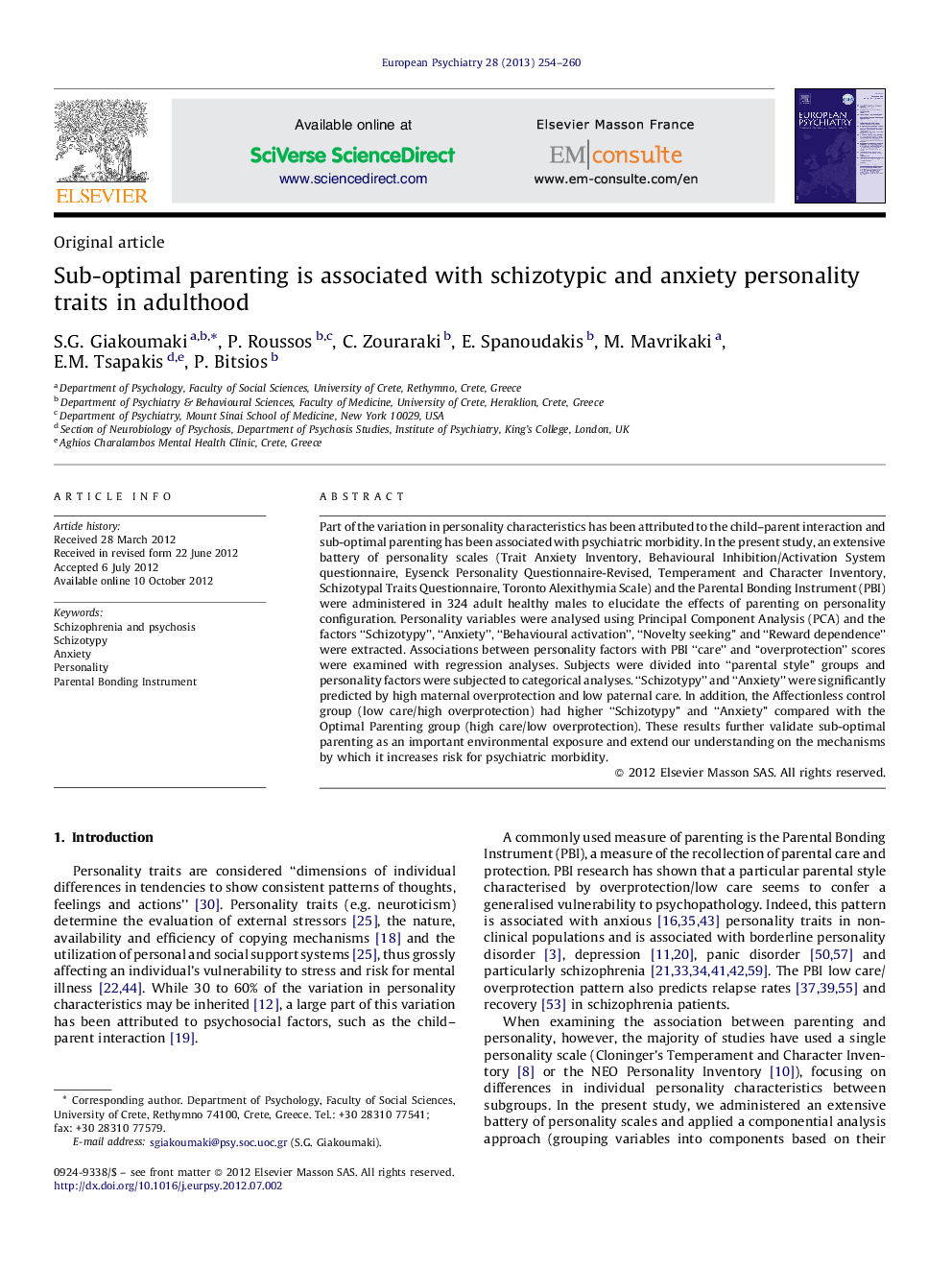| Article ID | Journal | Published Year | Pages | File Type |
|---|---|---|---|---|
| 4184409 | European Psychiatry | 2013 | 7 Pages |
Part of the variation in personality characteristics has been attributed to the child–parent interaction and sub-optimal parenting has been associated with psychiatric morbidity. In the present study, an extensive battery of personality scales (Trait Anxiety Inventory, Behavioural Inhibition/Activation System questionnaire, Eysenck Personality Questionnaire-Revised, Temperament and Character Inventory, Schizotypal Traits Questionnaire, Toronto Alexithymia Scale) and the Parental Bonding Instrument (PBI) were administered in 324 adult healthy males to elucidate the effects of parenting on personality configuration. Personality variables were analysed using Principal Component Analysis (PCA) and the factors “Schizotypy”, “Anxiety”, “Behavioural activation”, “Novelty seeking” and “Reward dependence” were extracted. Associations between personality factors with PBI “care” and “overprotection” scores were examined with regression analyses. Subjects were divided into “parental style” groups and personality factors were subjected to categorical analyses. “Schizotypy” and “Anxiety” were significantly predicted by high maternal overprotection and low paternal care. In addition, the Affectionless control group (low care/high overprotection) had higher “Schizotypy” and “Anxiety” compared with the Optimal Parenting group (high care/low overprotection). These results further validate sub-optimal parenting as an important environmental exposure and extend our understanding on the mechanisms by which it increases risk for psychiatric morbidity.
